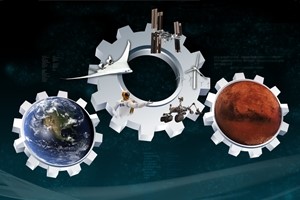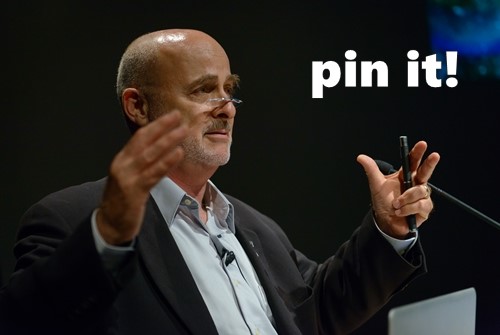articles about exploring space (and finding little green men)
How will we inhabit our solar system, or even our little corner of the galaxy?

THE GREAT SILENCE
the controversy concerning extraterrestrial intelligent life
David Brin's paper, "The Great Silence," remains the only scholarly review article about the Search for ExtraTerrestrial Intelligence. First published in 1983 in the Quarterly Journal of the Royal Astronomical Society (Vol. 24, No.3, P.283-309), it compares assumptions and theories, thus avoiding the tendency to adopt and argue in favor of one favorite.

Those Eyes
those infuriating little green men!
"Those Eyes," (which appears in Otherness and is available to read for free here), takes you on a ride through the notion of UFOs following the tough gaze of a radio talk show host who challengess the nasty, skulking 'visitors' to come into the open and face us, eye to eye! Follow it with a more 'realistic' variation of this story: David Brin's "An Open letter to Alien Lurkers." Learn more about David Brin's other short stories.

EXISTENCE
a bold look at first contact
David Brin's newest novel, Existence explores the ultimate question: Billions of planets may be ripe for life, even intelligence. So where is Everybody? Did planetary civilizations make the same fatal mistakes, over and over? Might we be the first to cross the mine-field, evading every trap? Can we learn the secret of EXISTENCE? Learn more about David Brin's other novels and books.

UFO fangasms on the rise
I must (alas) dive again into the UFO-mania Koolaid that millions slurp. So many absurdities that I dissect here, if you want your interest in 'the alien' to stand on far more solid ground. Not if you're emotional about this voluptuous, fact-free religion.

space! heading out there
Shall we begin "bootstrapping" our space technologies toward the goal of a Solar System Civilization? The idea is no longer science fiction's alone. "Right now, the mass we use in space all comes from the Earth. We need to break that paradigm so that the mass we use in space comes from space," said one NASA official. Pie-in-the-sky? Well, the potential methods for extracting space resources are looking more and more manageable.

are we raising a generation of Lindberghs and Earharts?
We are ready for the dawn of a new era, one of private space ventures. And, fortunately, the politicians seem perfectly ready to welcome non-state activity. We may, at last, be ready to embark on the equivalent of the the great age of "barnstorming" aircraft development, that our grandparents saw in the 1920s, when risk — and even some loss — was considered part and parcel of courage and exploration.

who's out there?
The early 1960s were pivotal for the field of "exobiology" (extraterrestrial biology) and especially the sub-branch that dealt with intelligent life, "xenology." For the first time it was legitimate for leading scientists to publicly consider the possibility of contact with intelligent species off of the planet Earth. No matter how daring, they were faced with one major limitation: a near total lack of data. The only known case of intelligent life is here on Earth. So what do they look for?

let's uplift ourselves first!
Will bitter ideological rifts dominate the 21st Century, as they did the 20th? Or might we shrug off some of the obsolete intellectual baggage we've inherited from past thinkers who (in fact) knew much less than we do now? David Brin's questionnaire regarding ideology and human destiny pokes at the deeper assumptions that underlie the many assumptions we take for granted.

comets & astrophysics
Every science show that depicts a comet now portrays the model developed in David Brin's PhD research (UCSD 1981) — a spinning icy mass insulated by carbonaceous dust, with sun-heated, geyser-jets spewing particles into space. That work inspired Brin's novel with Gregory Benford, Heart of the Comet, just before the 1986 Giotto mission confirmed the model. See the Astrophysical Journal paper "Three Models of Dust Layers on Cometary Nuclei" or an abstract of David Brin's PhD dissertation: "Evolution of Cometary Nuclei as Influenced by a Dust Component."
Continue reading more articles about seti and space exploration.
DAVID BRIN's interviews and discussions
Let's talk about space — and those annoying little green men.
our near and far future in space
In this video Brin presents "The Near and Far Future in Space" at the Space Technology Innovations Conference at Google Headquarters.
ReInvent the exploration of space
On ReInvent, SciFi author David Brin and an amazing roundtable of space entrepreneurs, experts and NASA scientists rough out some of the ambitious new goals that could drive the next Barnstorming Era in space, goals ranging from mining asteroids to exploring to....
talking the Fermi Paradox
Brin is video-interviewed on Fast Forward: Why haven't we heard from aliens? What explains the Great Silence? And why we haven't found any extraterrestrial neighbors yet?
an "explanation" for life's origins that falls way short
Guest-blogging on Sentient Developments, Brin notes: "These problems do not invalidate the notion that panspermia-seeding might have set life in motion on our planet. I find that general concept plausible in a very broad way — though not a leading candidate. Top position — until someone comes up with good reason to change — goes to the Standard Model consensus or life-from-nonlife in Earth's early seas."
should we terminate the transmission?
In this interview with Astronomy Now, Brin argues for a core group of SETI scientists who forcefully argue that we should not be shouting into the jungle, that we shouldn’t be looking to strike up a conversation with strangers whose motivations and capabilities are completely unknown to us.
contacting NASA
Brin participated in a conversation with Robert L. Forward and Jonathan Vos Post, moderated by NASA scientist (and Nebula Award winner) Geoff Landis, about the possibility of interstellar flight without faster than light travel. (This article originally appeared in the magazine Science Fiction Age.)
a really bad idea?
Slate Magazine interviews Brin after the debate about whether — and how — to broadcast reignited "at the annual meeting of the American Association for the Advancement of Science, held in San Jose."
debating the search
Should we beam messages to the cosmos? Science fiction author David Brin debates SETI and METI (Messaging to Extraterrestrials) on CBC Radio, with author and journalist Nick Pope. David Brin states, "My main concern as a scientist is the incredibly unprofessional way in which this has been proceeding."
are you down with METI?
On Star Talk Radio, the conversation delves into the SETI-METI debate — about whether to tell aliens where we live comes to StarTalk All-Stars, with host David Grinspoon, author David Brin and Chuck Nice.
searching for searchers
What are the chances of an advanced extraterrestrial civilization? In this video interview with The Daily Galaxy, David Brin comments on the Great Silence, the Fermi Paradox, and intelligent life in the universe.
Libertarian implications of the Great Silence
Taking the Libertarian perspective, David Brin criticizes the possibly reckless turn in recent SETI research. He also speculates on what the great silence may say about human societies. (Be sure to read the dissenting essays that follow Brin's.)
a brief intro to science fiction author DAVID BRIN
To learn more, visit his books page, or see his "about me" page or detailed biography.

novels
David Brin's science fiction novels have been New York Times Bestsellers, winning multiple Hugo, Nebula and other awards. At least a dozen have been translated into more than twenty languages. They range from bold and prophetic explorations of our near-future to Brin's Uplift series, envisioning galactic issues of sapience and destiny (and star-faring dolphins!). Learn More
shorter fiction
Short stories and novellas have different rhythms and artistic flavor, and Brin's short stories and novellas, several of which earned Hugo and other awards, exploit that difference to explore a wider range of real and vividly speculative ideas. Many have been selected for anthologies and reprints, and most have been published in anthology form. Learn More
Contrary Brin blog
Since 2004, David Brin has maintained a blog about science, technology, science fiction, books, and the future — themes his science fiction and nonfiction writings continue to explore. Learn More
social media influencer
Who could've predicted that social media — indeed, all of our online society — would play such an important role in the 21st Century — restoring the voices of advisors and influencers! Lively and intelligent comments spill over onto Brin's social media pages. Learn More

scientist
David Brin's Ph.D in Physics from the University of California at San Diego (the lab of nobelist Hannes Alfven) followed a masters in optics and an undergraduate degree in astrophysics from Caltech. Every science show that depicts a comet now portrays the model developed in Brin's PhD research. Learn More
transparency expert
Brin's non-fiction book, The Transparent Society: Will Technology Force Us to Choose Between Freedom and Privacy?, continues to receive acclaim for its accuracy in predicting 21st Century concerns about online security, secrecy, accountability and privacy. Learn More
speaker & consultant
Brin speaks plausibly and entertainingly about trends in technology and society to audiences willing to confront the challenges that our rambunctious civilization will face in the decades ahead. He also talks about the field of science fiction, especially in relation to his own novels and stories. To date he has presented at more than 300 meetings, conferences, corporate retreats and other gatherings. Learn More
future/tech advisor
Brin advises corporations and governmental and private defense- and security-related agencies about information-age issues, scientific trends, future social and political trends, and education. Urban Developer Magazine named him one of four World's Best Futurists, and he was appraised as "#1 influencer" in Onalytica's Top 100 report of Artificial Intelligence influencers, brands & publications. Past consultations include Google, Microsoft, Procter & Gamble, and many others. Learn More



